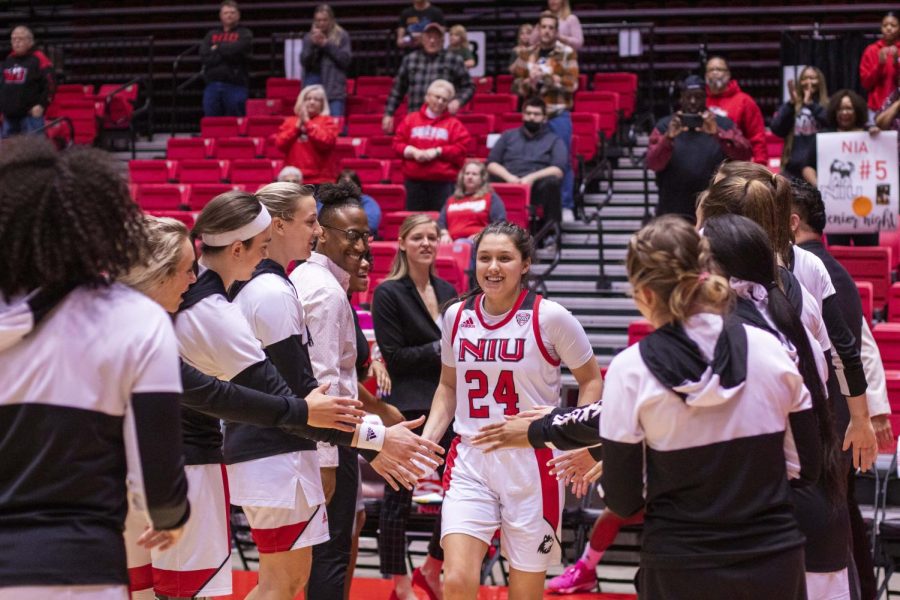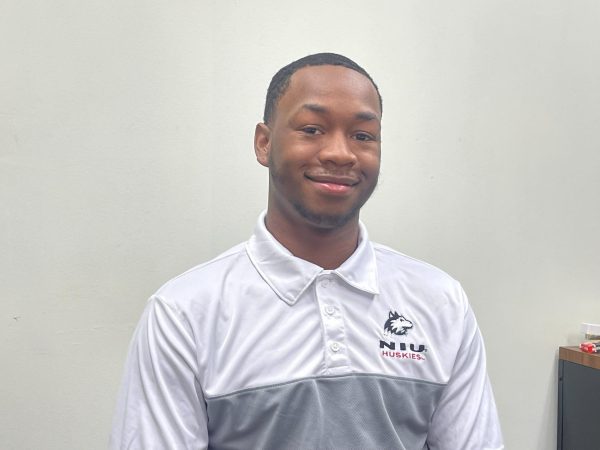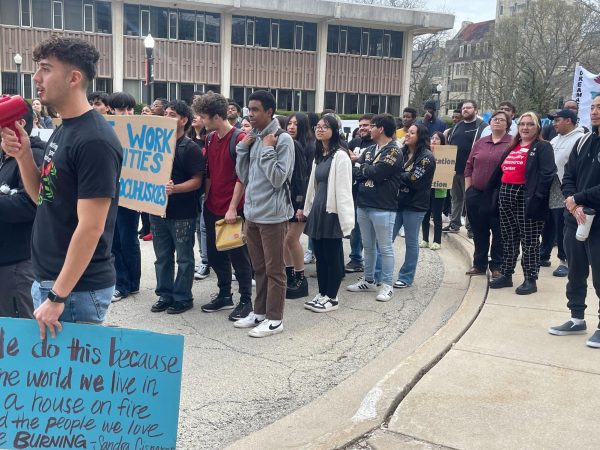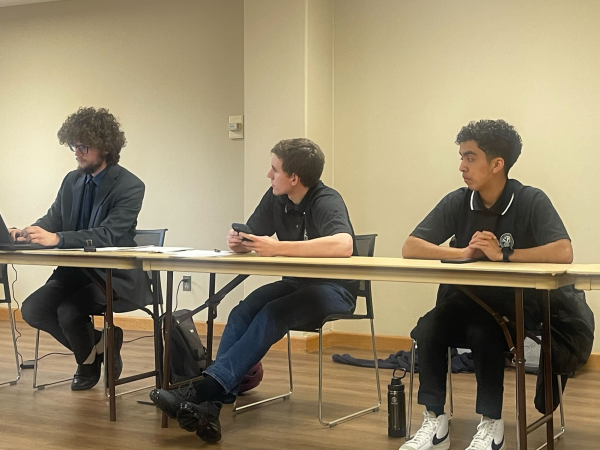Coaches reflect on 50-year impact of Title IX on women’s sports
Title IX is a 1972 law that prohibits discrimination based on sex in federal government-funded schools and programs
Redshirt senior guard Paulina Castro (24) walks out to greet the women’s basketball team during the starting lineup announcements March 5 on Senior Night before a game against Central Michigan at the NIU Convocation Center.
March 22, 2022
DeKALB — It has been 50 years since the passing of Title IX. The law has not only had an impact on women’s athletics in the past, but it can still further equality in women’s sports across the country.
What is Title IX?
2022 marks the 50-year anniversary of the passing of Title IX, which is a very necessary law that helps stop the discrimination of women at higher education institutions. Title IX gave women’s athletes the right to equal educational institutions that receive federal funds, from elementary school to colleges and universities, according to the Women’s Sports Foundation.
The opportunities that are now given to women athletes, coaches and administrators have increased tremendously since I was an athlete. You didn’t see a lot of female coaches when I was coming up, so the impact it’s (Title IX) had has been tremendous and well overdue. — Connie Teaberry, Director of Track and Field
Life for women in sports before Title IX
Before Title IX was passed in 1972, women were pretty much segregated from a majority of activities at universities. Women weren’t allowed to do many of the same things as men, according to the WEEA Equity Resource Center. Whether it’s using separate entrances, not being able to take classes like auto mechanics or even female faculty members being barred from joining faculty clubs, women were excluded from many activities.
In the sports world, the discrimination towards women was the same and even worse in some instances. Ann Gordon Bain, a varsity women’s basketball player at Radcliffe College in 1959, recalls the blatant discrimination her team faced in a Harvard article. The varsity women’s basketball team was in the middle of a game when the men’s team kicked them off the court for running past the slotted time.
“We hadn’t finished a varsity game, and they said, ‘Sorry, it’s our court.’ So we walked off the court. That’s the way it was in those days,” Bain said in the article.
The impact of Title IX on women
The impact of Title IX has definitely pushed the balance of women’s sports in the right direction. NIU’s Director of Track and Field Connie Teaberry, a former Olympian and college athlete herself, believes the Title’s impact stems from the opportunities that have arisen.
“The opportunities that are now given to women athletes, coaches and administrators have increased tremendously since I was an athlete,” Teaberry said. “You didn’t see a lot of female coaches when I was coming up, so the impact it’s (Title IX) had has been tremendous and well overdue.”
NIU women’s basketball head coach Lisa Carlsen believes that Title IX has helped the growth of universities in general, not just women in sports.
“(Title IX) has meant everything to the progression of women in sports and what we have been able to do,” Carlsen said. “From a collegiate standpoint, I think we’ve seen tremendous growth from an equity standpoint and none of that would’ve been possible without Title IX.”
Still work to be done
Although Title IX has helped in a major way of leveling the presence of women in sports compared to men, there is still a lot of work to be done to truly make it equal in the country.
“We gotta keep working at it,” Teaberry said. “There are opportunities that sometimes male coaches are looked at before female coaches are looked at. Even though we have female coaches who are just as good as the males. So, just continue to have institutions look at the hiring process and make sure it’s fair across the board so that women are given the same opportunities and chances as our male counterparts.”
For coach Carlsen, she believes having the continued conversations led by today’s student-athletes and coaches will help to bring more attention to making sports truly equal for men and women.
“The student-athletes today are great pioneers in their own way as far as continuing to push the buttons from an equity standpoint with compensation and opportunities at the professional level as well,” Carlsen said. “We have great voices right now, strong voices in women’s athletics, and I think we’ll continue to see growth, especially in women’s basketball because of the push from student-athletes and some pretty powerful women coaches.”












